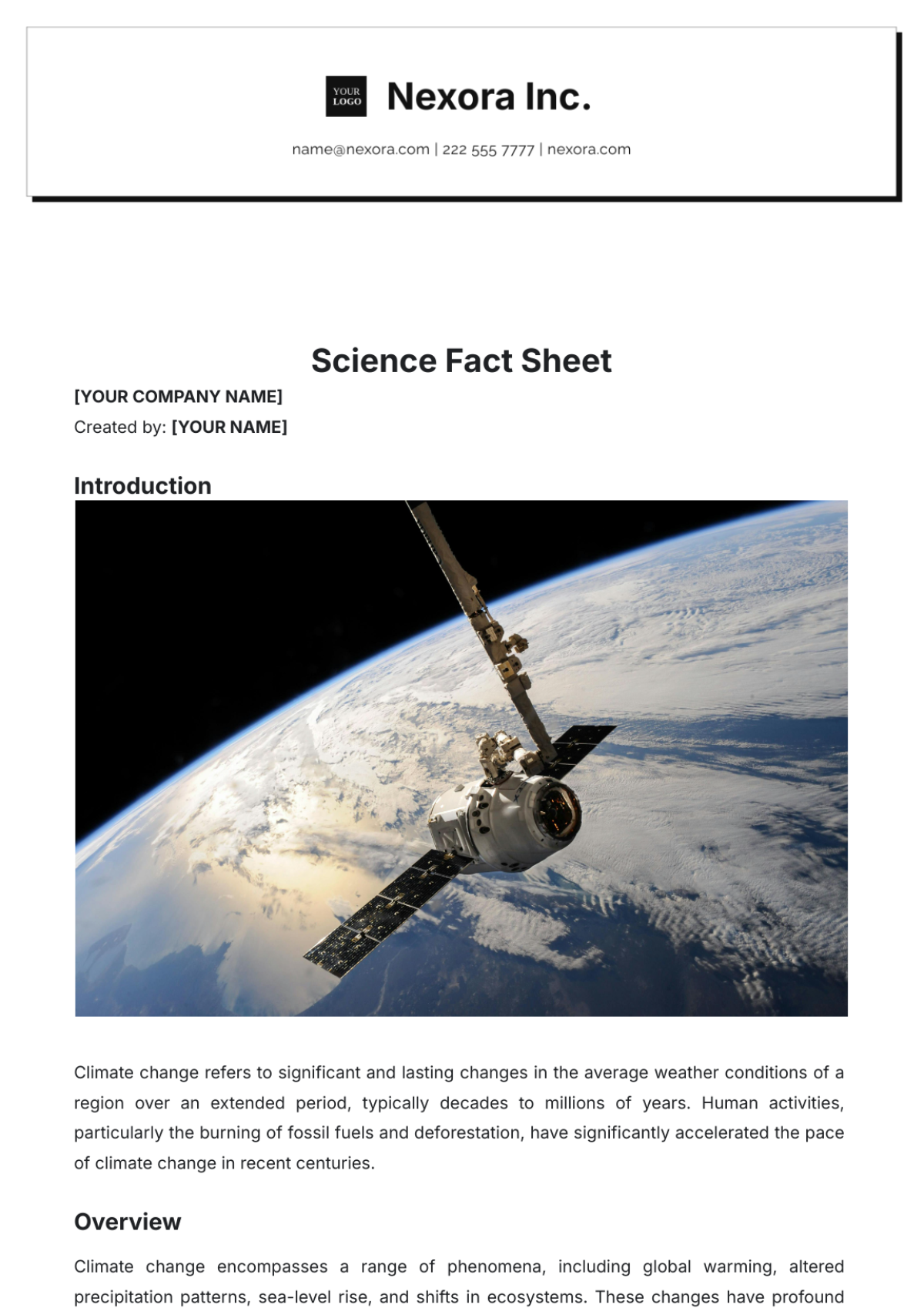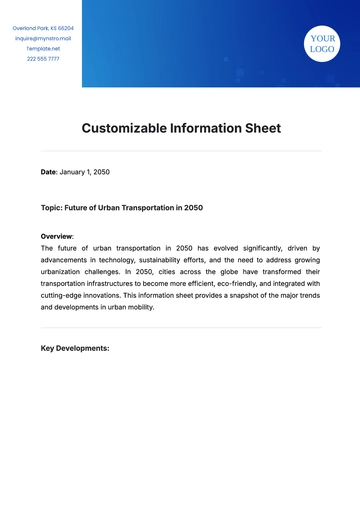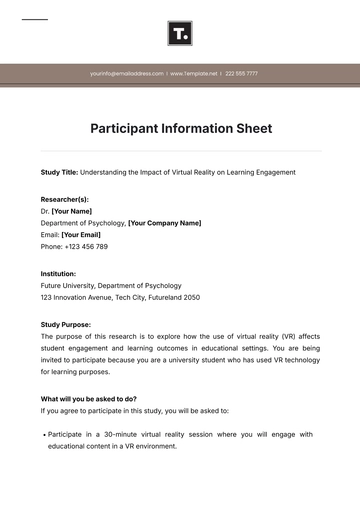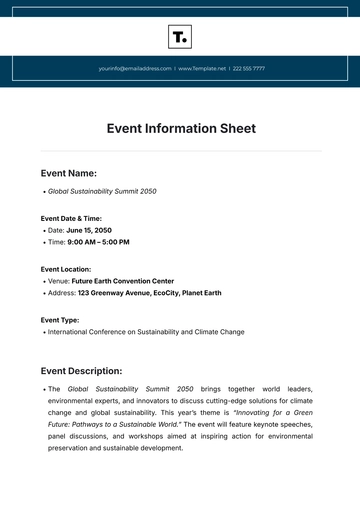Free Science Fact Sheet

[YOUR COMPANY NAME]
Created by: [YOUR NAME]
Introduction

Climate change refers to significant and lasting changes in the average weather conditions of a region over an extended period, typically decades to millions of years. Human activities, particularly the burning of fossil fuels and deforestation, have significantly accelerated the pace of climate change in recent centuries.
Overview
Climate change encompasses a range of phenomena, including global warming, altered precipitation patterns, sea-level rise, and shifts in ecosystems. These changes have profound implications for human societies, ecosystems, and biodiversity.
Key Points
Causes of Climate Change: Primarily driven by the increased concentration of greenhouse gases (such as carbon dioxide, methane, and nitrous oxide) in the atmosphere due to human activities.
Impacts: Rising global temperatures lead to more frequent and intense heatwaves, altered rainfall patterns causing floods or droughts, melting polar ice caps, and ocean acidification.
Mitigation and Adaptation: Efforts to mitigate climate change include reducing greenhouse gas emissions, transitioning to renewable energy sources, and enhancing carbon sequestration. Adaptation strategies involve preparing communities and ecosystems to cope with the impacts of climate change.

Statistics and Figures
Global Temperature Rise: The average global temperature has increased by approximately 1.1 degrees Celsius (2 degrees Fahrenheit) since the late 19th century.
Greenhouse Gas Emissions: Human activities, including fossil fuel combustion and deforestation, have led to a 45% increase in atmospheric carbon dioxide concentrations since pre-industrial times.
Sea-Level Rise: Global sea levels have risen by about 8 inches (20 cm) in the last century due to melting ice caps and thermal expansion of seawater.
Common Myths
Myth: Climate change is just a natural cycle.
Fact: Scientific evidence overwhelmingly attributes current climate change to human activities.
Myth: The Earth's climate has always changed, so current changes are normal.
Fact: The rate and scale of current climate change far exceed natural variations observed in the past.
Frequently Asked Questions
Q: Will planting more trees solve climate change?
A: While reforestation is beneficial for carbon sequestration, it alone cannot fully address climate change.
Q: How do scientists know climate change is happening?
A: Scientists use a range of methods, including temperature records, satellite data, and ice core samples, to study past and present climate trends.

Conclusion
Climate change is one of the most pressing challenges of our time, with far-reaching implications for the environment, economy, and society. Addressing climate change requires urgent and coordinated global action to reduce greenhouse gas emissions and build resilience to its impacts.
Contact Information
For more information or queries:
Email: [YOUR COMPANY EMAIL]
Phone: [YOUR COMPANY NUMBER]
- 100% Customizable, free editor
- Access 1 Million+ Templates, photo’s & graphics
- Download or share as a template
- Click and replace photos, graphics, text, backgrounds
- Resize, crop, AI write & more
- Access advanced editor
Introducing the Science Fact Sheet Template available on Template.net! This resource offers a comprehensive solution for creating informative fact sheets. It's fully editable and customizable, allowing you to tailor content to your specific needs. With our Ai Editor Tool, you can effortlessly adjust layouts and designs. Enhance your scientific presentations and reports with this versatile template today!
You may also like
- Attendance Sheet
- Work Sheet
- Sheet Cost
- Expense Sheet
- Tracker Sheet
- Student Sheet
- Tracking Sheet
- Blank Sheet
- Information Sheet
- Sales Sheet
- Record Sheet
- Price Sheet
- Plan Sheet
- Score Sheet
- Estimate Sheet
- Evaluation Sheet
- Checklist Sheet
- Bid Sheet
- Call Log Sheet
- Bill Sheet
- Assessment Sheet
- Task Sheet
- School Sheet
- Work From Home Sheet
- Summary Sheet
- Construction Sheet
- Cover Sheet
- Debt Spreadsheet
- Debt Sheet
- Client Information Sheet
- University Sheet
- Freelancer Sheet
- Bookkeeping Sheet
- Itinerary Spreadsheet
- Scorecard Sheet
- Run Sheet
- Monthly Timesheet
- Event Sheet
- Advertising Agency Sheet
- Missing Numbers Worksheet
- Training Sheet
- Production Sheet
- Mortgage Sheet
- Answer Sheet
- Excel Sheet





























